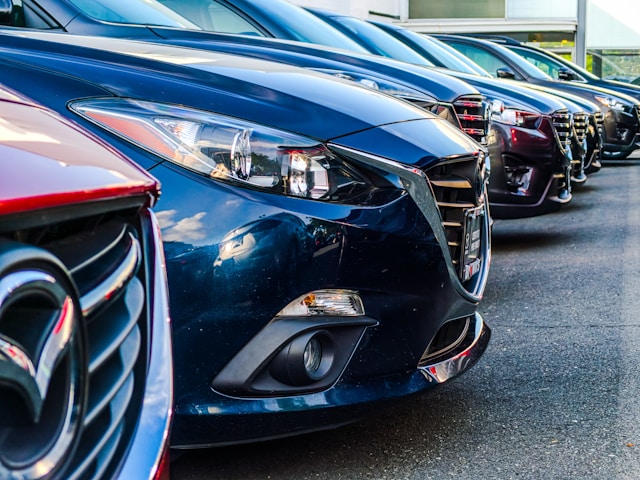Auto Tariff Deal to Be Unveiled Today at Michigan 100 Days Celebration
A new auto tariff compromise easing the burden on automakers by softening recent tariff hikes is set to be announced today. The adjustment aims to prevent stacking duties on imported cars and parts, offering temporary relief.
April 29th, 2025


President Trump should announce a partial rollback of his recently imposed automotive tariffs on Tuesday, aiming to ease the burden on car manufacturers while still promoting his "America First" industrial policies. The move, first reported by CNN and The Wall Street Journal, seeks to soften what could have been a major blow to the U.S. auto industry — but it doesn't erase the self-inflicted challenges these tariffs have already caused.
Earlier this month, the Trump administration slapped a 25% tariff on foreign-made cars. This was on top of existing tariffs on key materials like steel and aluminum. Industry groups and major automakers immediately raised alarms, warning that such stacking of tariffs could dramatically raise production costs and, inevitably, car prices for consumers. Morgan Stanley had projected that the 25% car tariff alone could add about $6,000 to the average price of a new car, representing a 10%-12% spike.
Responding to intense lobbying from automakers and suppliers — and perhaps sensing political headwinds ahead of his Michigan rally marking 100 days in office — Trump agreed to some key adjustments. According to The Wall Street Journal, automakers will not have to pay tariffs twice on the same imported vehicles and parts. Specifically, companies will now be reimbursed for other levies, like those on steel and aluminum, that were stacking on top of the new car tariffs.
Additionally, tariffs on foreign auto parts, originally set to go into effect on May 3 at 25%, will be partially reimbursed. Automakers can apply for reimbursements up to 3.75% of a car's value for the first year, with the figure dropping to 2.5% in the second year before being phased out completely.
This change is retroactive, meaning companies could get refunds for tariffs already paid—good news for automakers' bottom lines but a clear sign of how chaotic tariff policy has become under the current administration.
Commerce Secretary Howard Lutnick framed the new deal as a "major victory" for American workers and manufacturers, arguing it rewards companies already building in the U.S. and incentivizes others to bring more of their supply chains back home. Ford CEO Jim Farley also praised the decision, calling it a move that "helps mitigate the impact of tariffs on automakers, suppliers, and consumers," according to the Wall Street Journal.
But while the immediate financial pressure has been reduced, the larger issue remains: uncertainty. Auto supply chains are sprawling, deeply international, and intricately optimized. Sudden changes to tariff structures make long-term planning extremely difficult. As CNN pointed out, companies have warned that reshoring manufacturing could take years, not months. Constantly shifting tariff policies create a climate where companies hesitate to invest, hire, or adjust operations because they simply don't know what the rules will be six months down the road.
In essence, these tariffs—even in their softened form—are a self-inflicted wound. They were designed to encourage domestic manufacturing but risked causing immediate price hikes, production slowdowns, and supply chain disruptions. The administration's backpedaling is a tacit acknowledgment of this miscalculation.
Trump's latest move offers a temporary detour around a looming economic pothole. But as the industry has learned yet again, the real obstacle isn't just the cost of tariffs — it's the unpredictability of trade policy itself.
Sources: CNN ("US eases auto tariffs after deal to protect American industry"), The Wall Street Journal ("Trump to Soften Blow of Automotive Tariffs").


Copy link to clipboard